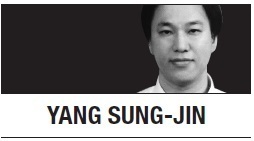Jennifer recently opened a restaurant. She faithfully paid the rent, taxes and other sundry fees. She also hired staff, including a talented chef. She developed an incredibly tasty menu. Not long after she started her long-awaited business, a horde of customers rushed to dine out at the new restaurant.
The restaurant became so famous and popular that a great number of people rode buses for hours to visit the restaurant and have a nice meal. Business, all in all, was great, and nothing would stop Jennifer from increasing her wealth.
Everything seemed perfect until a group of bus drivers knocked on the door of Jennifer’s office.
“Well, well, well,” said a driver who was apparently leading the group. “There’s no free lunch, you know.”
“Of course not, sir. We definitely charge a fair price on our lunch menu,” Jennifer said in a kind, courteous tone.
“No, I’m talking about the money you have to pay to us!” the driver barked. “Since your restaurant attracts so many people, including those from a distant region, our bus drivers have become terribly busy handling your customers. Therefore, you owe us money, which will be used to resolve our busy schedule.”
Jennifer was puzzled. “I don’t get it! When our customers use buses to come to my restaurant, they pay the fare to you, I mean bus companies. Why do I have to pay you extra money? How come you charge both bus passengers and restaurant owner?”
The driver said in a raised voice, “You just have to, since other big and popular restaurants are paying us the extra money, according to the government regulations. Just pay up or you’ll face the music!”
This fictional scenario is what is actually happening in South Korea. Just replace Jennifer with Netflix and bus drivers with internet service providers, such as SK Broadband, and the overall storyline is the same.
At dispute is what is called “network usage fee.” ISPs call foreign content providers like Netflix “free riders” and push them to pay extra fees, since they have to handle the surging internet traffic their services generate. Netflix counters that ISPs, which are already collecting fees from local broadband subscribers, have no right to impose additional fees on content providers.
The controversy, in fact, has long complicated the relations between ISPs and foreign online service providers including Facebook and Google, which runs YouTube, a video service that creates a huge amount of online traffic.
Korea’s major content providers Naver and Kakao are reported to pay annual network fees of 70 billion won ($56 million) and 30 billion won, respectively, to local ISPs. Likewise, Netflix should pay network fees to ISPs so that its video streaming service can be provided to Korean users with a good connection, according to domestic ISPs.
This week, a string of news outlets reported that in April alone, Netflix pulled in an estimated 43.9 billion won from 3.28 million subscribers in the Korean market, citing credit card transaction estimates by a local retail statistics firm, as Netflix does not reveal revenue and profit figures for local markets. The figures mark a big jump from a mere 3.5 billion won in credit card payments and 280,000 paying users two years earlier.
The coronavirus outbreak is said to have boosted the demand for such video-streaming services among Korean viewers, many of whom are forced to work from home. The surging growth of Netflix subscribers means a drastic hike in online traffic, and local ISPs are voicing their positions on network usage fees.
SK Broadband asked the telecom regulator Korea Communications Commission to mediate the dispute. Netflix filed a civil lawsuit, arguing that it cannot pay the network usage fees. As the conflict intensified, the National Assembly passed a revision bill last week, informally dubbed the “Netflix Law,” requiring both ISPs and content providers such as Netflix to take responsibility for helping maintain network service quality.
Not only foreign content providers but also Korean internet firms lost no time protesting the legislation, claiming that the new bill is largely designed to ensure greater profits for ISPs and is feared to stifle local content providers. Naver and Kakao also expressed regrets about the revision bill.
It is unclear whether the dispute surrounding network usage fees will be amicably resolved. A lot of money is at stake, after all. What’s clear, though, is that if Jennifer is eventually forced to pay the extra fee, she is very likely to pass the added cost on to her customers. This would be unfair for customers, who pay the bus fare, pay for the meal and indirectly pay extra money to bus drivers.
By Yang Sung-jin (
insight@heraldcorp.com)
Yang Sung-jin is the multimedia editor of The Korea Herald. -- Ed.






![[Today’s K-pop] Blackpink’s Jennie, Lisa invited to Coachella as solo acts](http://res.heraldm.com/phpwas/restmb_idxmake.php?idx=644&simg=/content/image/2024/11/21/20241121050099_0.jpg)
